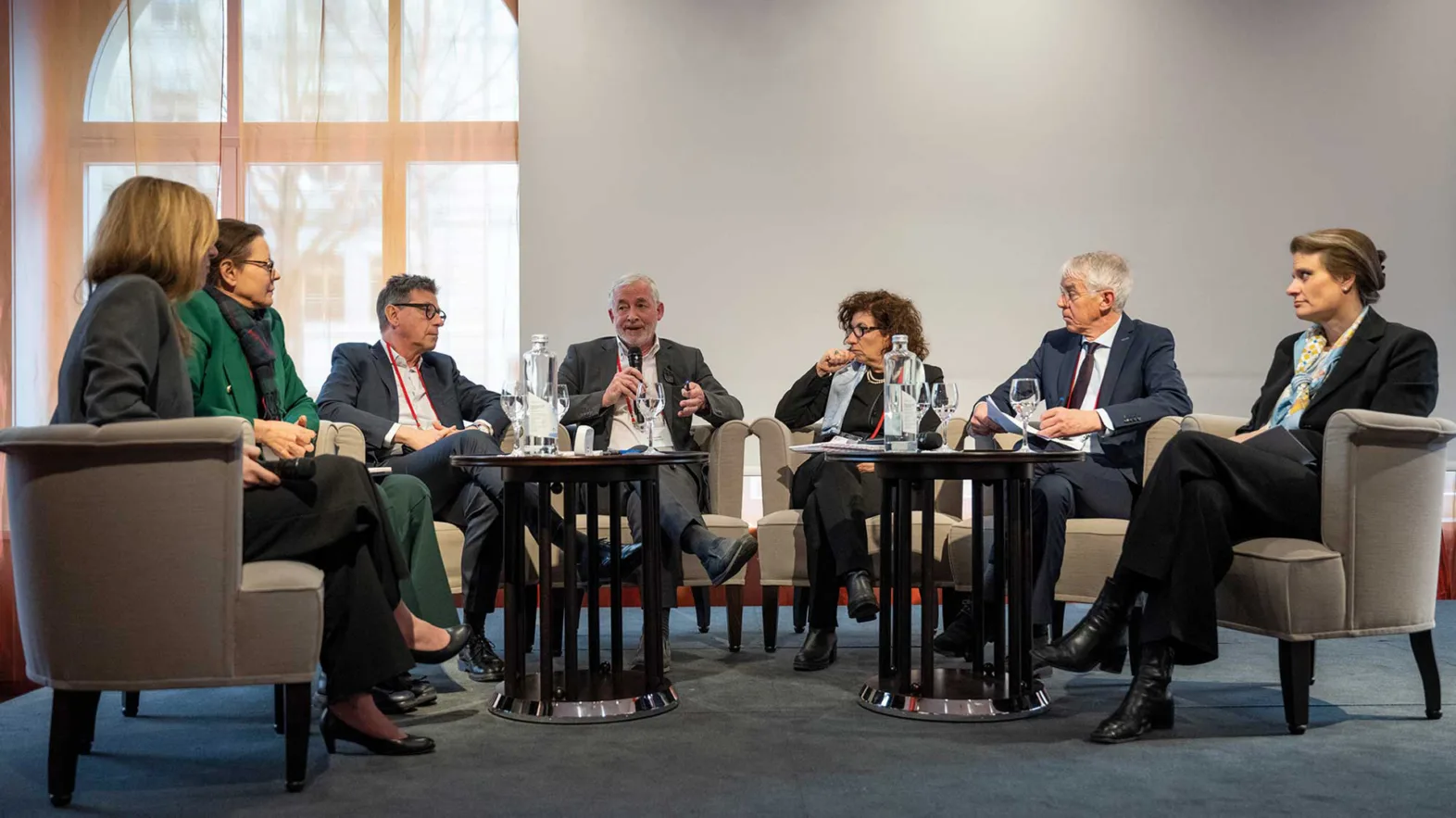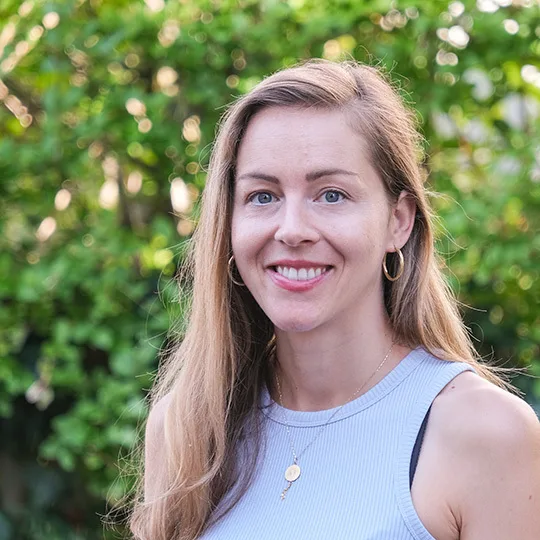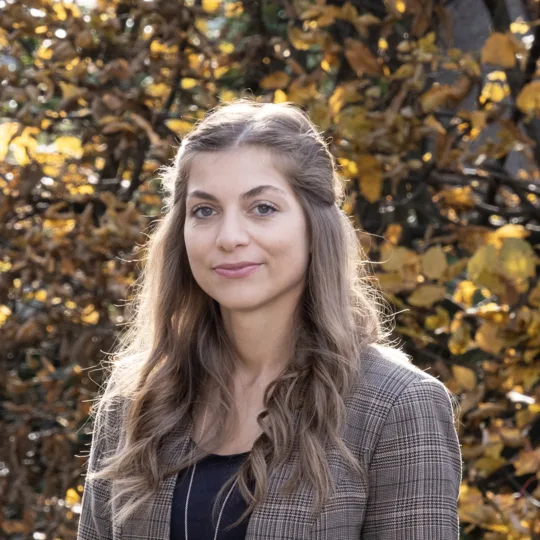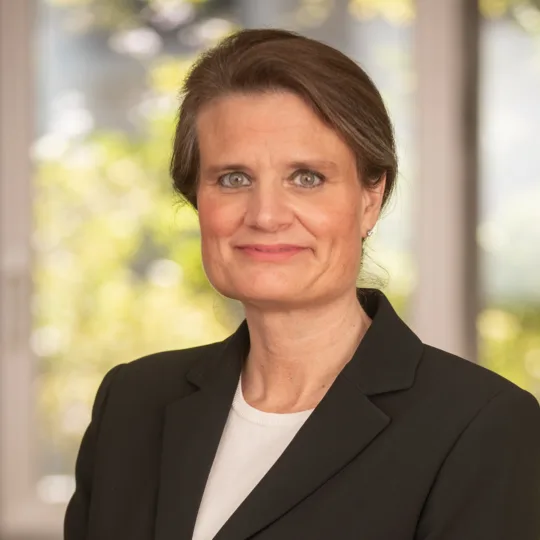European cooperation in Open Science
In March 2023 SERI teamed up with the EOSC Association to organise an event on Open Science in Bern. The aim was to encourage national and European dialogue on Open Science.

'When it comes to research cooperation between Switzerland and Europe, there are few better examples than Open Science to clearly demonstrate the advantages of sharing research findings and FAIR data,' State Secretary Martina Hirayama noted in her welcome speech. Noting the benefits of Open Science for all stakeholders, Martina Hirayama pointed out that cooperation between Europe and Switzerland should be further intensified in order to jointly address the challenges facing Open Science.
A change in culture at all levels
'What resources are required by what actors to drive Open Science forward in Switzerland and Europe?' This question was the subject of a panel discussion that brought together State Secretary Hirayama, Martin Vetterli (President of EPFL and the Open Research Data Strategy Council of Swissuniversities), Karl Luyben (President of the EOSC Association), Luciana Vaccaro (President of swissuniversities), Matthias Egger (President of the National Research Council of the Swiss National Science Foundation) and Jana Kolar (Chair of the European Strategy Forum on Research Infrastructures).
One of the key findings was that Open Science needs to be further 'embraced' and 'recognised' by the research community in order to achieve better results in science and to fully exploit the potential of Open Science. In order for this to happen, there is a need to build trust between organisations at all levels - between researchers, between research institutes and between countries - and to coordinate suitable measures enabling the implementation of FAIR principles.
In this context, there was consensus that strategic and geopolitical issues should also be considered in the context of Open Science in order to ensure 'knowledge safety' in sensitive areas. The panelists also saw eye-to-eye on the subject of implementation: Open Science requires a change of culture. In order to achieve this at all levels, researchers need to be the first ones involved in the process.
European and national strategies on Open Science and Open Research Data
Following this debate, Ute Gunsenheimer (Secretary General) and Karl Luyben (President) of the EOSC Association presented their European-level objectives and strategies. There are already several Swiss-European Open Science projects with local stakeholders.
Gilles Dubochet chairs the coordination group of the ORD Strategy Council in Switzerland. He gave a presentation of Switzerland's National Strategy on Open Research Data (ORD), which was published by swissuniversities in July 2021. This strategy paper was followed by a corresponding action plan in January 2022. Both instruments were developed through the combined efforts of swissuniversities, the ETH Domain, the Swiss National Science Foundation (SNSF) and the Swiss Academies of Arts and Sciences.
The ORD strategy is an important step at national level to drive Open Science forward and embed it within research communities. As several use cases show, the strategy has already yielded practical results. These include trust-building processes and new collaborative partnerships that should help to break down data silos between researchers, disciplines and communities.
Open Science in research infrastructures and communities
Other topics discussed at the event included, firstly, the promotion of Open Science and Open Research Data in Swiss research infrastructures, especially within the context of long-term funding solutions for data storage and curation. Secondly, participants discussed how Open Access and Open Research Data can be promoted at Swiss higher education institutions and within the Swiss research community. An important consideration here is interoperability between and within disciplines and research communities in Switzerland and Europe. Each research community has different starting points and may have different requirements.
The organisers were pleased with the event: it addressed key national and European debates on Open Science, Open Research Data and Open Access and provided fresh momentum for future cooperation and joint strategies.
European Open Science Cloud
The European Open Science Cloud (EOSC) is a pan-European project to establish a virtual environment connecting existing research infrastructures in Europe. The resulting network will allow scientists to share and access research data based on the principles of Findability, Accessibility, Interoperability, and Reuse (FAIR). The EOSC provides a single access point upon which a wide range of value-added services can be built.
The EOSC Tripartite Governance is a concept of strategic coordination between the European Commission (which represents the European Union), the EOSC Steering Board (which represents EU Member States and Associated Countries in Horizon Europe) and the EOSC Association (which represents the European research community). Swiss interests are represented by several organisations that are members of the EOSC Association.
In 2021, the EOSC Association began organising national events in member countries for the purpose of engaging in dialogue and strategically coordinating implementation of Open Science and the EOSC. Although Switzerland is currently not an Associated Country in Horizon Europe, the EOSC Association wanted to organise a national event in Switzerland to draw greater (also political) attention to the importance of the Swiss research community.
Contact
Author



